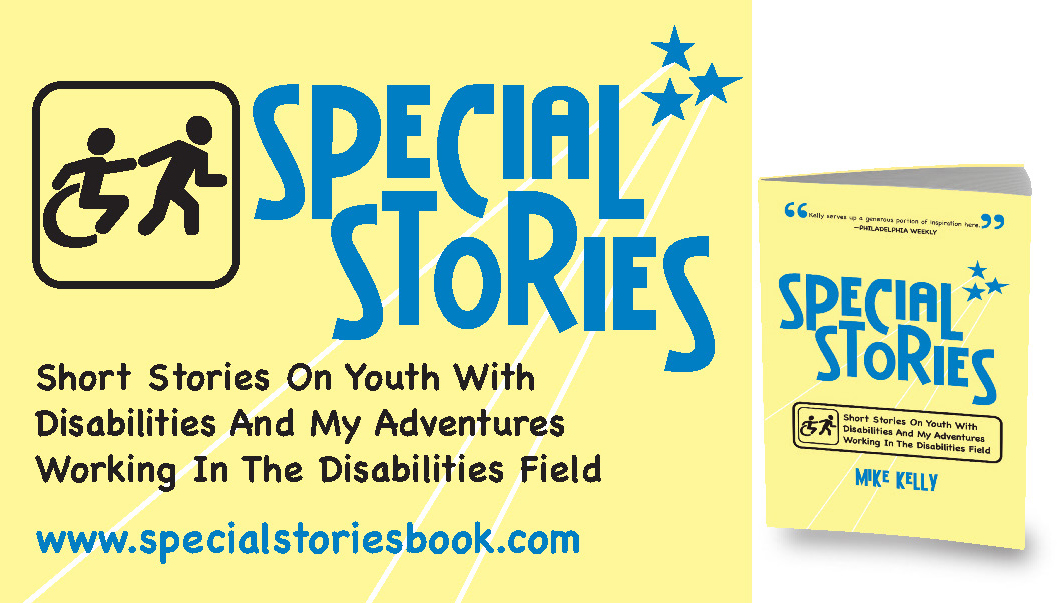Book about disability employment- What the publishing industry thinks about individuals with disabilities
A few years ago I was wandering around a large chain bookstore, looking for books that told the stories of individuals with disabilities. Since I was working with kids with disabilities for a living, I was curious to see what was out there.
Not having any luck finding a single book on the topic, I went up to the customer service kiosk and asked the store manager what section I might find those particular books.
She looked at me as if I had asked her if she could tell me where the traveling Martians just landed their spaceship within the store.
Baffled, she then walked me over to the ‘parenting’ and ‘child and adolescent challenges’ section. This small section only displayed a few books on how to raise or teach a child with autism. There was also a lone children’s book that featured a single character with autism. She said that she didn’t remember ever seeing any books that featured stories on multiple people with disabilities all within one book.
That’s bizarre, I thought.
The federal Centers for Disease Control and Prevention report that roughly 1 in 7 American children have a developmental disability—over 3 million kids nationwide. Add to that number the millions of adults living with a disability and you now have millions more people in that demographic.
Millions of people seems to be enough of a potential audience pool for there to be lots of books on the subject, and one would think that there would be many books sharing the stories of people with disabilities .
Unfortunately, that’s not the case.
After investigating, I discovered that while there are some books written on how to raise or teach a child with autism—and children’s books featuring a single character with a disability—there are no books featuring numerous people with all different types of disabilities, highlighting their successes and challenges—all in one book.
Perplexed, I made numerous contacts to literary agents and acquisitions editors from the publishing industry asking why that was the case. The universal response to my question was: “We don’t publish books like that.”
I made my case: considering the demographic of tens of millions of children and adults in the United States that have disabilities, millions more people who work within the disabilities field as special educators, nonprofit workers, corporate and collegiate diversity and inclusions professionals, and government workers in that space, wouldn’t there be a need for such books? I asked.
The response: “We just don’t publish books like that.”
I still wasn’t satisfied with their non-answer answer and wanted to know why don’t you publish books like that?
Again, there’s a potential audience of tens of millions of people just in the United States alone that are directly connected to the subject matter: individuals with disabilities.
It’s not like I was searching for books on footwear worn by soldiers who fought in the Third Punic War (149 BC-146 BC) or books on the dietary habits of the extinct dodo bird of Mauritius or books on the greatest free-style American wrestlers of the 19th Century—where audiences of only hundreds or thousands might exist.
When I could, I let these book publishing experts know that their industry somehow sees fit to publish books written by Reality TV ‘stars’ with limited vocabularies whose claims to fame are screaming, assaulting someone, cursing, belching on camera, throwing chairs or overturning tables, backstabbing, spewing insults, getting drunk or high, or sleeping with someone else’s loved one.
But the book publishing industry doesn’t see the need to publish inspirational books that feature kids with all different types of disabilities that tell their stories?
No matter what questions, facts, logic I used, or attempts to create a spark of interest, it resulted in the same response: “We don’t publish books like that.”
End of story.
That’s a shame, I thought.
Because I felt it was time for their untold stories to finally be shared to help inspire others with disabilities to think outside the box and reach for the stars, I wrote and published one myself.
For a decade and a half, I’ve worked with many young people with a wide range of challenges—ADD/ADHD, Anxiety Disorder, Autism/Asperger’s, Cerebral Palsy, Down syndrome, Intellectual Disabilities, Learning Disabilities, Obsessive Compulsive Disorder, Spina Bifida, Visual Impairment, Tourette syndrome, Williams syndrome, and more—who have fought through adversity yet have achieved measurable success in their lives. They’re fascinating kids with interesting stories to tell.
In contrast to what the publishing industry thinks, I do believe my students are worthy of having their stories told.
Now—finally!—there’s a book about youth with disabilities for individuals with disabilities themselves, parents of kids with disabilities, special educators, workers in the disabilities field, corporate diversity and inclusion professionals, and everyone else, telling the stories of so many individuals with challenges and providing a collective voice for the millions of kids out there just like them.
To learn more about the new book, “Special Stories: Short Stories On Youth With Disabilities And My Adventures Working In The Disabilities Field” by Mike Kelly (2017, Vendue Books) visit www.specialstoriesbook.com.

